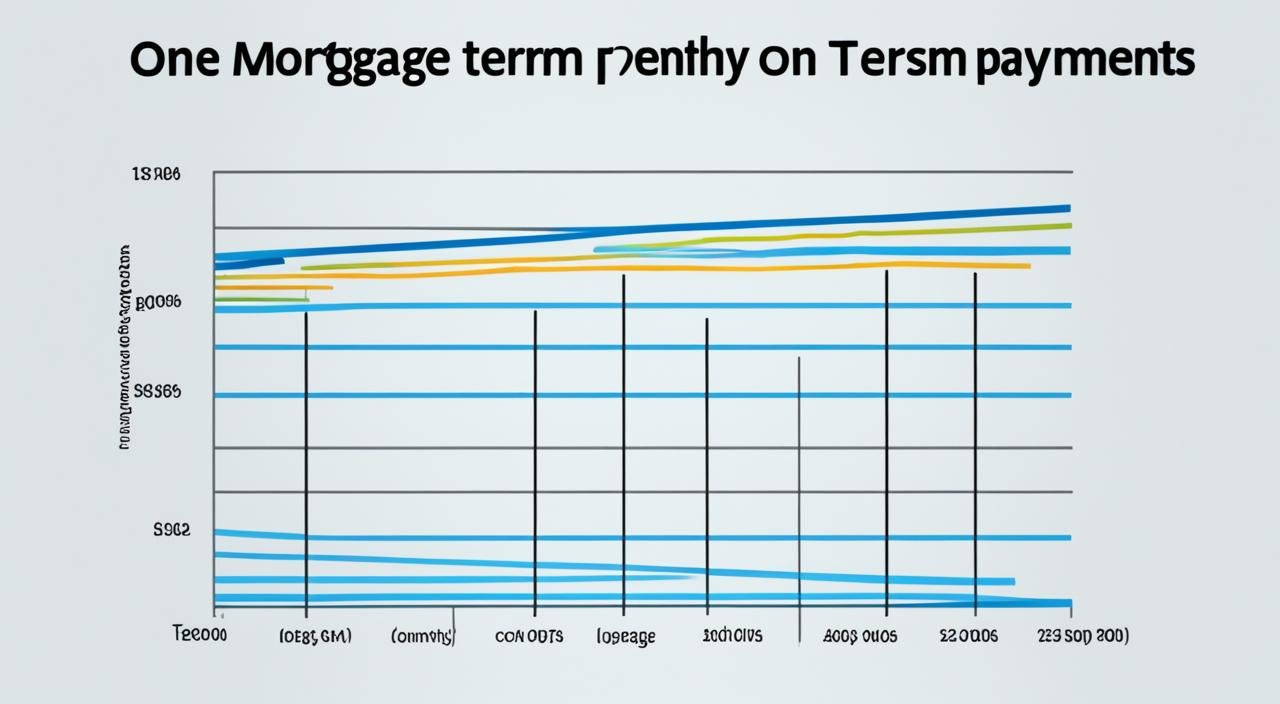A mortgage is a long-term loan to buy a house. You pay back the money you borrowed plus interest payments. The house and its land are what you put up as a promise to pay. Your monthly mortgage payments mainly depend on two things: the loan’s size and its term.
The size refers to how much money you’re borrowing. The term is how long you have to pay it all back. Usually, with a longer term, your payments are less each month. This is why many people choose 30-year mortgages. When looking for a loan for your new place, a mortgage calculator can be a big help. It lets you see how different mortgage types and lenders compare.
Key Takeaways
- A mortgage lets you borrow money for a home over a long time.
- The term of the loan tells you how long you have to pay it back.
- Longer mortgage terms mean lower monthly payments.
- It’s smart to understand how the mortgage term affects what you pay and your total cost.
- Use a mortgage calculator to compare mortgage types and lenders.
Definition of Mortgage Term
The “mortgage term” means how long you’ll pay your loan. It’s the time it takes to pay off all money borrowed. When you get a mortgage, both you and the lender decide on this time frame.
Duration or Repayment Period
The mortgage term decides your payment time and size. It also affects how much interest you pay. What term you can choose depends on the lender’s options and what you need.
Impact on Monthly Payments and Total Interest
Your mortgage’s term affects your monthly and total payment. Knowing about the mortgage term, what it means, and its effect on monthly payments is key for home buyers.
Types of Mortgage Terms
When talking about mortgage terms, there are two main kinds to think about: short-term and long-term.
Short-Term Mortgage Loans
A short-term mortgage is usually under 10 years. It lets people own their homes faster. With lower time to pay, monthly payments are higher. This is because the total is divided over a few months.
Long-Term Mortgage Loans
Many choose long-term mortgages to lower their monthly payments. Common terms include 15 and 30 years. Yet, paying over a longer time means more interest. This is the trade-off for lower monthly costs.
Mortgage Term and Monthly Payments

A mortgage’s amortization schedule lays out how much of each payment covers principal, interest, tax, and insurance. The first year’s payments are mostly for interest. Later, payments go mostly towards reducing your loan amount Amortization Schedule Breakdown Your amortization schedule shows how payments shift from interest to principal. In the beginning, you pay mostly interest. Near the end, you focus more on reducing the loan balance.
Principal and Interest Distribution
When your mortgage term starts, you gain equity slowly. But, making extra principal payments can help. They lower your loan’s balance, so less interest accrues, helping you pay off the loan faster.
Factors Determining Mortgage Term Length

In deciding a mortgage term length, many factors matter. First off, lenders offer choices mostly between 15-year and 30-year terms. However, you might find some with different options to pick from.
Lender Offerings
The variety in term lengths depends on your lender. While many focus on 15-year and 30-year mortgage term choices, others offer even more. You might come across lenders offering 10-year, 20-year, and sometimes even 40-year loans. Knowing your lender’s variation in term lengths is crucial for your financial planning.
Borrower Qualifications
Your own borrower qualifications make a difference too. Your credit score, debt-to-income (DTI) ratio, and general financial setup impact the term lengths you’re eligible for. Those in a strong financial position can pick from more options in mortgage term length.
Comparing Different Mortgage Terms
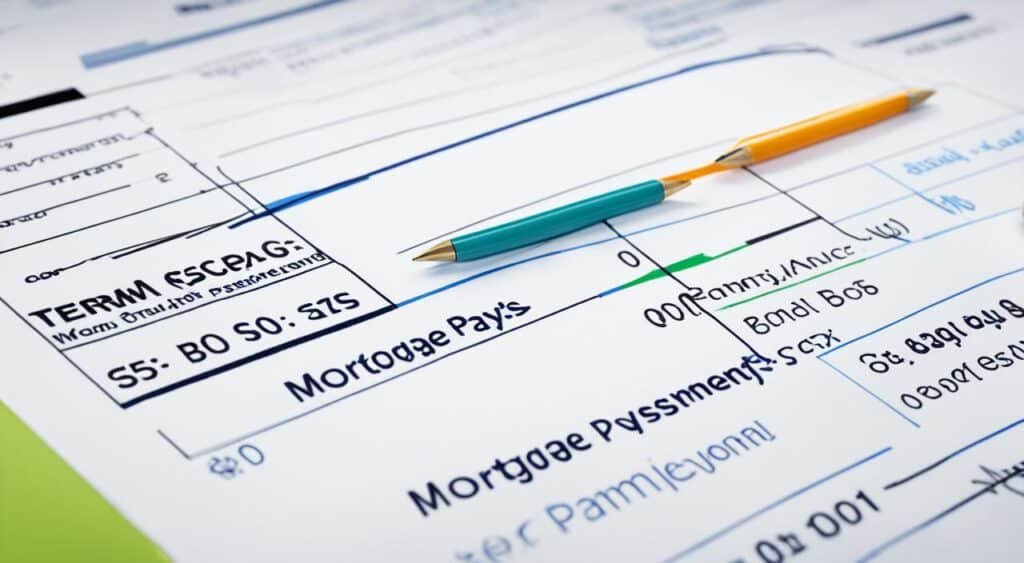
Choosing the length of your mortgage term can really change things. It affects your monthly payments. It also changes the total interest you pay over the loan’s life.
Term Length Comparison Example
For instance, let’s look at a $200,000 loan with a 6% interest rate. We’ll compare the costs for 15-year and 30-year terms. See the differences in monthly payments and interest costs in the table below.
| Loan Term | Monthly Payment | Total Interest Paid |
|---|---|---|
| 15-year mortgage | $1,687.71 | $103,788 |
| 30-year mortgage | $1,199.10 | $231,676 |
Monthly Payment and Total Interest Costs
For a 30-year mortgage term, your monthly payment is lowest at $1,199.10. But, you’d pay $127,888 more in total interest versus a 15-year term.
Choosing a 15-year mortgage term means paying $1,687.71 monthly. But, your total interest would be much lower at $103,788. This shows the choice between lower monthly costs and higher interest payments over time.
Mortgage Term

Understanding your mortgage term length is key before signing up. It affects your monthly payments and the total loan cost. Always ask your lender about any unclear loan terms before signing.
Importance of Understanding Term Length
Knowing your mortgage term is vital. For instance, a 30-year loan offers smaller monthly payments, which can help you qualify for more. But, you will pay a lot more in interest.
Impact on Home Affordability
Choosing the right mortgage term affects how affordable your home is. A 15-year loan has higher monthly payments but lower total interest. Or, a longer loan can make buying a home easier, but it’s costlier in the long run.
Additional Mortgage Loan Terms and Conditions
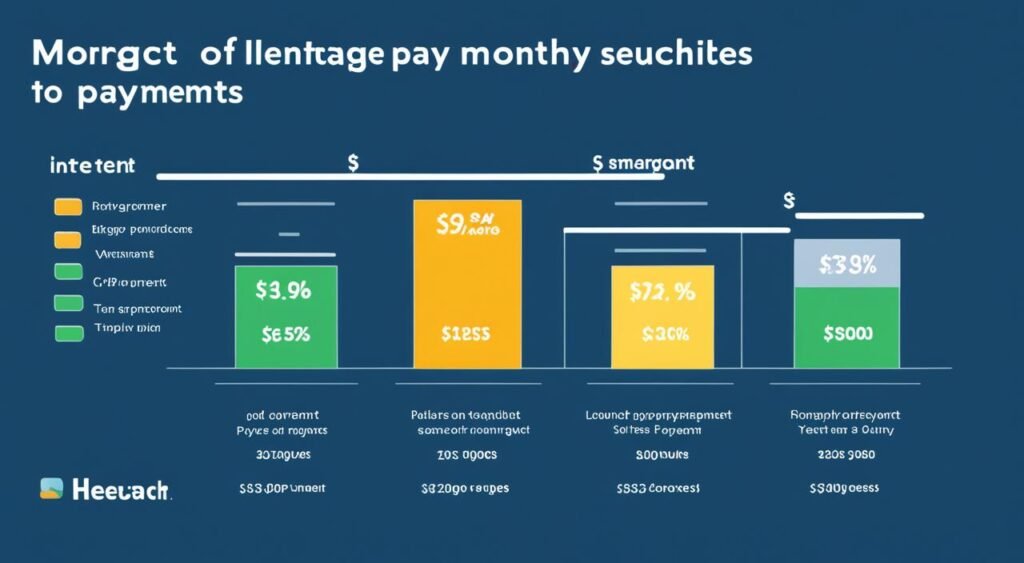
Getting a mortgage means looking beyond just the loan term length. You should know about extra terms and costs too. These can affect how much you pay back and when. Three big things to look at are the Annual Percentage Rate (APR) ,Closing Costs , and Additional Fees
The APR includes your yearly interest rate and extra lender fees. It gives the true expense of borrowing. Thus, it’s key in comparing mortgage deals wisely.
Closing costs are the fees to finalize your mortgage. These cover application costs, title insurance, and any other last-minute costs. Knowing these costs early helps you avoid budget shocks at closing.
Besides APR and closing costs, your mortgage might have additional fees. These could be origination fees, yearly charges, penalties for early payoffs, and for paying late. You should be aware of all costs to plan your monthly and long-term finances carefully.
Negotiating Mortgage Terms
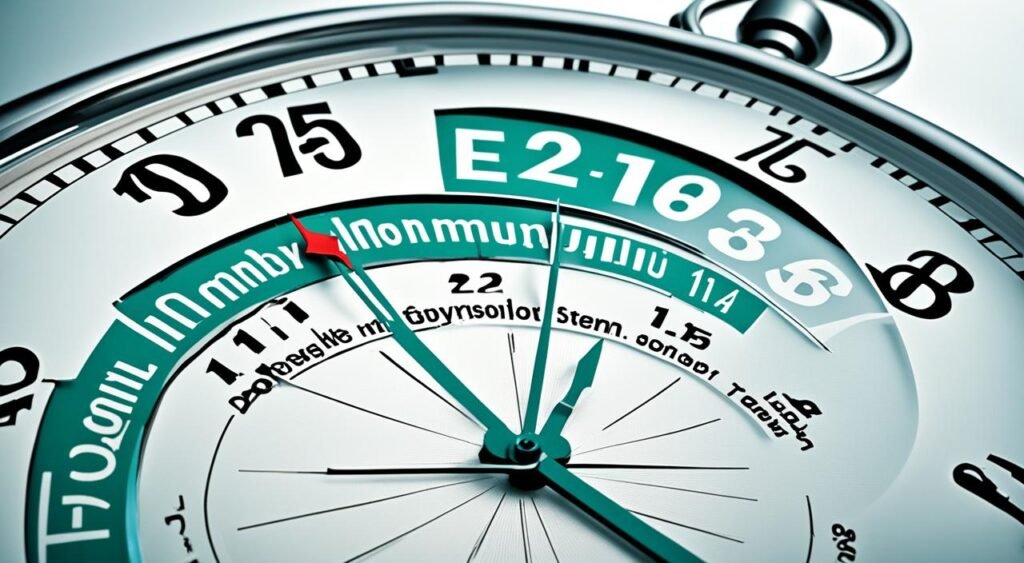
Getting mortgage preapprovals from different places is smart. It lets you check out various mortgage term offers. This way, you can pick what’s best for your money and home goals.
Getting Multiple Lender Offers
When you get mortgage preapprovals from many lenders, you gather vital info. You find out what terms different banks can give you. It’s key for making a smart choice and having the power to negotiate for better deals.
Comparing and Choosing the Right Option
Knowing the loan term length and all the mortgage terms and conditions helps you negotiate better deals. By checking offers from many, you can see which mortgage matches your cash and house goals the most.
| Mortgage Term | Monthly Payment | Total Interest Paid |
|---|---|---|
| 15-year | $1,687.71 | $103,788 |
| 30-year | $1,199.10 | $231,676 |
Historical Trends and Future Outlook
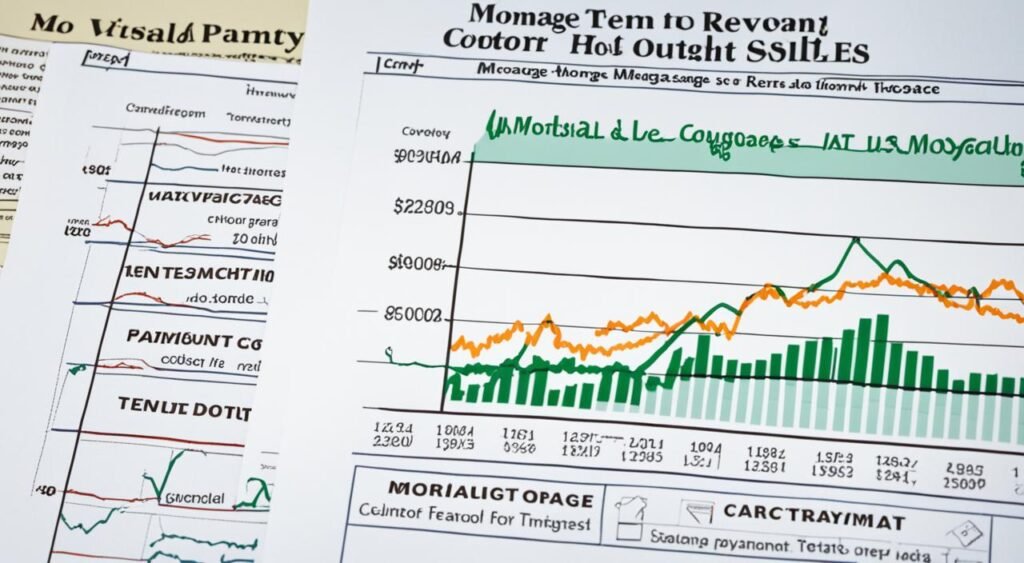
In 1934, the modern mortgage began as a way to fight the Great Depression. The government made a program that asked for only a small down payment on a home. This helped more people buy homes because, before this, you had to pay 50% upfront. Since then, the mortgage world has grown. Now, people can choose from many different types and lengths of loans.
Future mortgages might change as our needs do. With the housing market and the economy always shifting, new mortgage options could appear. This way, buying a home should stay affordable and doable for everyone.
Also Read: How To Apply For A Mortgage Modification: Step By Step Process
Conclusion
Knowing about a mortgage term is vital when buying a home. This includes its definition and how it affects your monthly payments. Making a smart choice here can help you reach your financial goals and needs for owning a home.
The mortgage world has changed a lot, giving us many term lengths and loans. You might be looking at a short or long-term mortgage. It’s crucial to think about each option’s pros and cons. This ensures you’re picking what’s best for you.
Understanding what affects your mortgage term is key. Things like what the lender offers, your qualifications, and how the payments and interest costs add up matter. Armed with this information, you can confidently move forward. This brings you closer to making your homeownership dream a reality.
FAQs
What is a mortgage term?
A mortgage term is how long a borrower has to pay back the loan. They make regular payments over this time.
How does the mortgage term impact monthly payments and total interest?
The term’s length affects your monthly payment and total interest. A longer term means lower monthly payments but more interest paid in total.
What are the different types of mortgage terms?
Mortgage terms are short-term (under 10 years) or long-term (15 or 30 years). Short-term loans mean higher monthly payments but less interest. Long-term loans offer lower monthly payments but more interest paid overall.
How does the mortgage term affect the amortization schedule?
The form of term influences how much of your payment is interest or principal. A shorter term sees more paying down principal. Longer terms mean early payments mostly cover interest.
What factors determine the mortgage term length I qualify for?
Your term’s length depends on what lenders offer and your financial status. This includes your credit score, how much you owe, and other things. People with a better financial standing can often pick their term more freely.
How do different mortgage terms compare in terms of monthly payments and total interest?
In general, a 30-year loan has smaller monthly payments than a 15-year one. However, you pay more interest over the life of the 30-year loan.
Why is understanding the mortgage term important?
Knowing about the mortgage term helps you see the big picture of buying a home. Loans with longer terms offer lower monthly payments. But, this means more interest paid over the loan’s life.
What other mortgage loan terms and conditions should I be aware of?
Along with the term, know about the APR, closing costs, and any added fees. These might include origination or application fees, and prepayment penalties.
How can I negotiate the mortgage terms with lenders?
To get the best terms, get preapprovals from multiple lenders to compare. Then, you can choose what’s best for your situation and goals.
What is the historical context and future outlook for mortgage terms?
In 1934, mortgages were created to help in the Great Depression. Since then, they have changed to meet buyer’s needs. The future might bring more changes to adapt to the housing market.
